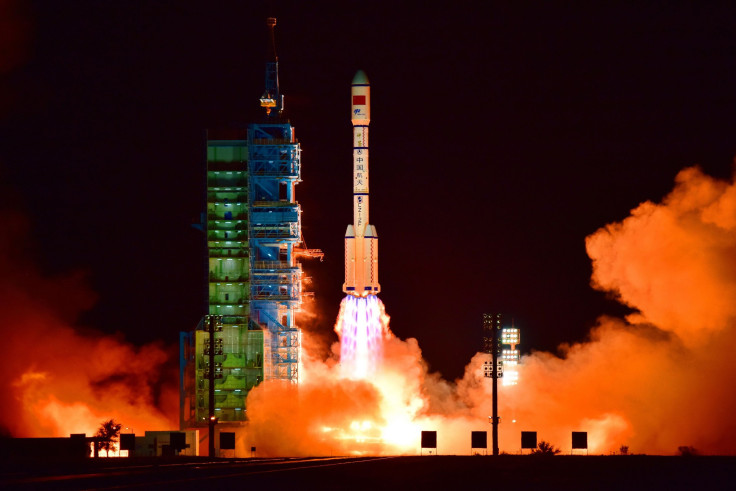Shenzhou-11 Launch: China’s Manned Spacecraft To Lift Off Monday

In a crucial step toward advancing its ambitious space program, China will, on Monday, launch two astronauts aboard the Shenzhou-11 spacecraft that will dock with the Tiangong-2 — the country’s orbiting space lab launched last month.
The launch will take place at 7:30 a.m. local time (7:30 p.m. EDT Sunday) from the Jiuquan Satellite Launch Center in the Gobi Desert. The Shenzhou-11 will be carried on board a Long March-2F carrier rocket.
The two astronauts — identified by the state-run Xinhua News Agency as Jing Haipeng and Chen Dong — will stay in the space lab for 30 days, during which they will carry out medical and scientific experiments in addition to ascertaining the complex’s habitability.
Astronauts Jing Haipeng, Chen Dong meet the press. They'll carry out China's Shenzhou-11 mission, stay in space lab Tiangong-2 for 30 days pic.twitter.com/W4jdK4n732
— China Xinhua News (@XHNews) October 16, 2016
“It is any astronaut's dream and pursuit to be able to perform many space missions,” Jing, for whom this would be the third flight into space, told Xinhua.
Since it sent its first satellite into orbit in 1970, China has been pumping large amounts of cash into its space program. It sent its first astronaut into space in 2003, and in 2011, it launched Tiangong-1 — the first operational component of the Tiangong program, which seeks to put a permanently manned space station into service by 2022.
The second component, Tiangong-2, was launched in September.
The country’s space ambitions extend far beyond sending astronauts to low-Earth orbits. In 2013, as part of its lunar exploration program, China launched the Jade Rabbit — its first lunar probe. By 2018, China aims to land its Chang'e-4 probe on the far side of the moon, and by 2020, it plans to send an unmanned rover to Mars.
“Only by completing this Mars probe mission can China say it has embarked on the exploration of deep space in the true sense,” Xu Dazhe, director of China’s National Space Administration, said earlier this year.
© Copyright IBTimes 2024. All rights reserved.






















